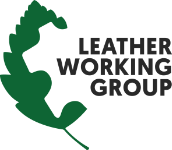DEICHMANN traditionally accords high priority to the issue of sustainability. Companies today are quite rightly expected to act in a socially and environmentally responsible way. That happens to be a view we share. Our company was founded in Essen in 1913 and has always been in the hands of the same family. That’s why it has always been important for us to think and plan in terms of generations. “The company must serve the people” is our corporate mission statement. The growth of our organisation has been constant, yet it has always remained within manageable bounds. As a result, we have been able to continuously and sustainably create new jobs and provide in-depth training to our employees. Even though we are Europe’s largest footwear retailer with operations in 36 countries, we still feel a strong connection to our roots in the Ruhr region of Germany. In fact, some 16,500 of the 49,900-strong global workforce are employed in Germany. Sustainability is a multi-faceted issue for DEICHMANN. One of the most pressing social challenges in this day and age is ensuring that economic development, production and consumption in international value chains remain sustainable, resource-efficient and socially responsible. We live in a globalised world.
Products with special qualities
The fact that aspects such as fashion, quality and sustainability are becoming increasingly relevant to our customers confirms that we have been doing the right thing for many years. We only use skin-friendly materials that are free from undesirable chemical substances in our products, and our shoes are manufactured with solvent-free adhesives. Our packaging is made from recycled raw materials.
In the children’s footwear segment, for example, DEICHMANN has included elefanten brand models with the German government’s “Blue Angel” environmental seal in its range as part of a pilot project. The goal of Blue Angel is to establish exacting standards along the entire production chain, thereby contributing to the protection of the environment and health.
We also have elefanten, Bench and FILA shoes made in part from recycled materials in our range. Vegan models, i.e. models without any components of animal origin, can also be found in the elefanten collection.
Environmental standards in leather production

DEICHMANN has been committed to improving environmental standards in leather production for many years. The company not only makes financial investments in this process, but also specifically promotes the local implementation of the improved standards. It is for this reason that DEICHMANN is a member of the international Leather Working Group (LWG), a global community of companies and other stakeholders in leather production that has developed guidelines for uniform environmental standards and audits. The LWG aims to improve the leather industry’s environmental footprint with audits and certifications for leather manufacturers.
Value chain accountability
For many years, the responsible design of supply and value chains has been an important element of DEICHMANN’s good procurement practices. The relevant rules are set out in a “Code of Conduct” and the policy statement, and they are regularly reviewed by means of appropriate controls and due diligence processes.
Asia traditionally plays a major role in the global textile and apparel industry. Eighty percent of the shoes produced worldwide are manufactured in Asia – and DEICHMANN’s range is no exception. Our products are shipped to Europe by sea and then transported to the individual stores via distribution centres. DEICHMANN mainly uses sea and rail transportation routes – which offer an efficient means of goods transportation in terms of carbon emissions. Trips, cargo space concepts and even the own fleet of trucks are continuously reviewed and optimised.
DEICHMANN is a member of the German Association of Environmental Management, B.A.U.M. This environmental initiative, the largest of its kind in Europe, aims to promote sustainable environmental practices in all areas of corporate governance.
Managing toxic substances: DEICHMANN’s standards surpass legal requirements
DEICHMANN offers fashionable, affordable and good-quality footwear to its customers. All products are thoroughly tested for undesirable chemical substances. We work closely with our suppliers in the manufacturing process to ensure that our product development input is taken into account early on, when our collections are being designed. External testing institutes additionally monitor compliance with DEICHMANN’s own quality and environmental standards, which go far beyond the legal requirements. These institutes also conduct tests to identify potentially harmful or prohibited substances during the production process.
Setting sector standards
We share our expertise in these areas with other companies in our sector through our involvement in various committees and associations. DEICHMANN is a founding member of cads – cooperation for assuring defined standards for shoe and leather goods production e.V. – which was established under the umbrella of the German Shoe Institute (DSI) in Offenbach. cads is involved in initiatives to raise awareness and prevent the use of hazardous substances in shoes. The association’s objectives are to create and disseminate knowledge relating to the production and marketing of non-toxic footwear and footwear materials, as well as environmentally friendly production practices. The companies affiliated with cads have already voluntarily dispensed with the use of critical substances in the materials used for shoe production, and they do so to an extent that goes far beyond the legally regulated parameters. cads also focuses on the issue of sustainability, including aspects such as environmental and social standards.
